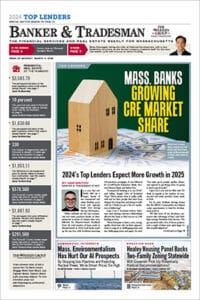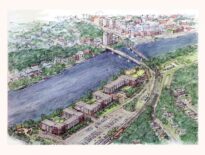As COVID-19 slammed into Massachusetts with full force in March and April, the real estate world rang with cries that the end of the city was upon us.
Fearful of contracting the virus, the theory went, people with any means would decamp en masse for the suburbs and the countryside. All the fabulous restaurants and vibrant culture in the world couldn’t hold a candle to a pathological aversion to being in close proximity to another human.
So far, it seems like some of that could be coming true among well-heeled buyers and renters. As Steve Adams and Jay Fitzgerald detail in this issue, both the luxury apartment and condominium markets are seeing unprecedented softness.
Managers of rental buildings are having to resort to expensive concessions, like two months’ free rent, to stabilize their properties. Developers bringing new ownership projects to market are rethinking the design of their building’s systems and amenities to make prospective buyers feel safer.
And everyone is hoping that this will be enough to carry them through what are likely to be a rough 12 to 24 months until a vaccine for the coronavirus is developed and deployed widely enough to make elite clients – even before the pandemic especially attuned to issues of health and wellness – comfortable returning to urban lifestyles.
As Jordan Warshaw argues in this month’s CRE Insider, the commodity that is the city will always bounce back. With the right investment, density has historically created more value and dynamism than sprawl, conditions which reliably draw in both money and customers.
But, for now, Massachusetts’ urban economies appear fragile, and the forces that keep them humming are in danger of dissipating. It is becoming clear that colleges and universities aren’t likely to resume classes in the fall with full compliments of students on-campus. Office and lab tenants whose leases are coming due this summer and fall are being tempted by the opportunity to tighten their belts by moving to the suburbs. And a significant minority of the shops and restaurants that provide the street-level vitality that defines the urban experience say they’re doubtful they will survive this period.
Where does this leave lenders, major investors and policymakers? While investors and lenders with the ability to focus on the long-term could do Massachusetts a favor by striking sympathetic agreements with their borrowers and partners, not everyone can. And without federal help, the state government does not have the fiscal firepower to replace two years of lost consumer demand.
The commonwealth is in for an uncomfortable stretch of economic disruption, and everyone who can take steps to soften its blows – keep unemployment benefits strong and business deals flexible – and plan for a more suburban future by reducing or eliminating single-family zoning and beefing up the state’s commuter rail and bus systems should do so.
Letters to the editor of 300 words or less may be submitted via email at editorial@thewarrengroup.com with the subject line “Letter to the Editor,” or mailed to the offices of The Warren Group. Submission is not a guarantee of publication.






